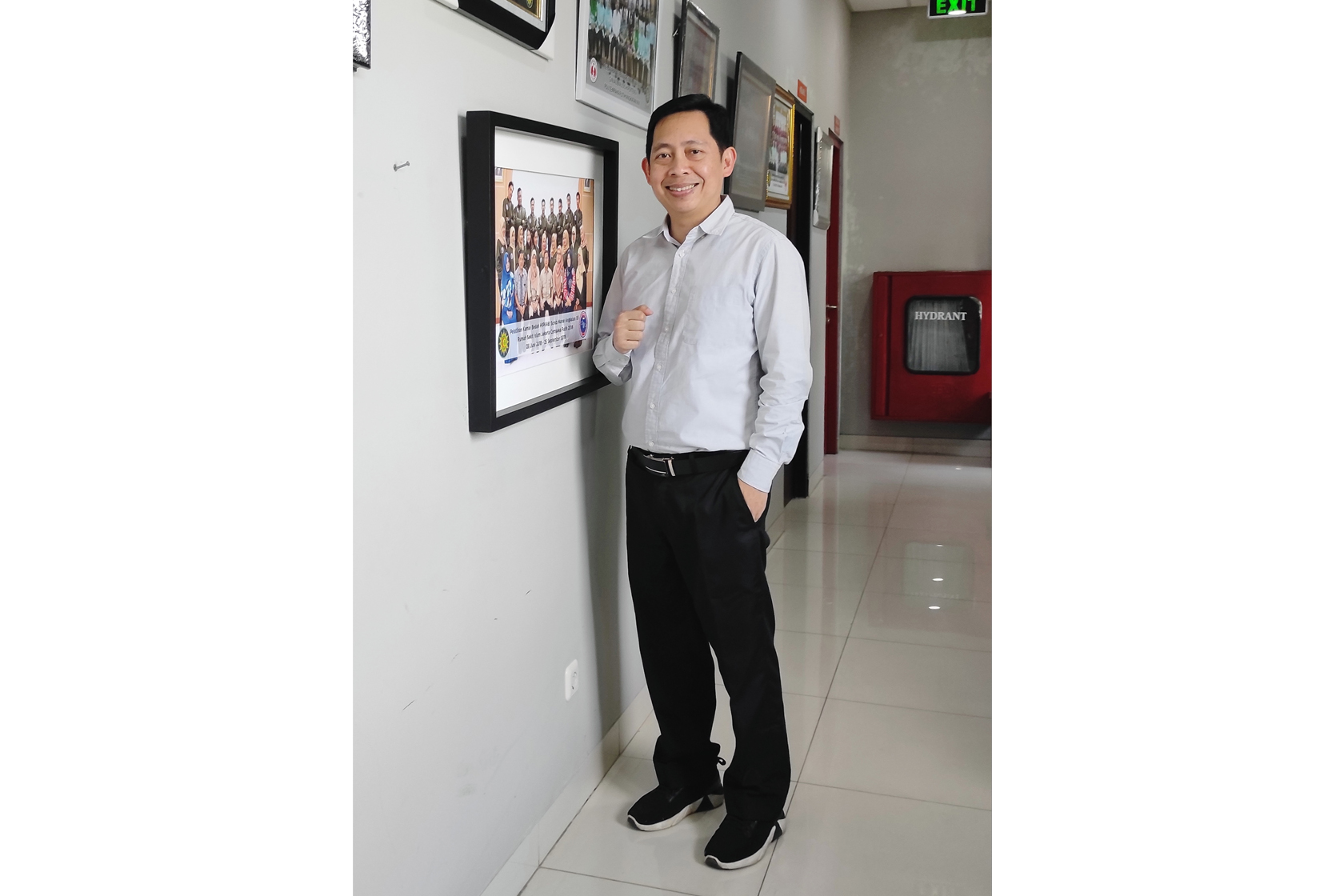Hepatitis has been in the news a lot recently, with a spate of acute hepatitis of unknown origin in children in 20 countries across the globe, including 24 children in Indonesia.
Hepatitis is a disease that causes inflammation of the liver. Its symptoms include jaundice, joint pain and fever.
The theme of this year’s World Hepatitis Day, 28 July, is “Hepatitis Can’t Wait”. Every 30 seconds a person dies from a hepatitis-related illness somewhere in the world.
In Indonesia, 19 million people live with hepatitis B and 2.5 million people live with hepatitis C. Yet, there are only 165 liver specialists in the country, most of whom are located in Western Indonesia. The hepatitis HBO vaccine – given to newborn babies – is part of the mandatory immunisation protocol for children, however community clinics and hospitals do not always have the vaccine available.
Dr Denny Hardianto MPH is a dentist by training and director of the Lebak Mission Hospital (RS Misi Lebak) in Banten, the westernmost province of Java. It’s one of four hospitals in the Lebak regency that serve a catchment of 1.3 million people.
Dr Denny moved to Lebak four years ago from Sumba, where he was the deputy director of Karitas Hospital and had worked for the Child Sight Foundation Indonesia.
He is also a double OzAlum, having participated in two short courses organised by Australia Awards in Indonesia: the Malaria Prevention and Treatment for Infants, Children and Pregnant Women in Eastern Indonesia course at the Nossal Institute for Global Health in 2017 and the Role of Disabled People’s Organisations in the Implementation of Policy Reform course at the University of Sydney in 2019.
“We were taught that we can’t work alone,” Dr Denny said. “My colleagues in the two courses were all remarkable people from various professions. I learned that I can’t force my ideas, we have to work as a team. Our contributions all support one another and help shape a comprehensive policy.”
Implementing and adapting lessons from Australia
The incidence of hepatitis at RS Misi Lebak is low. In April and May 2022, for example, the hospital only had 14 cases of adult hepatitis. To date, there have been no cases of acute hepatitis in children in the province of Banten.
Even with this low incidence, the hospital has put procedures in place for the prevention and mitigation of hepatitis. Dr Denny’s approach was influenced by lessons from the short courses, for example, having a systematic mindset to planning, auditing the hospital’s facilities, methods for problem analysis and integrated activity planning.
The hospital first assessed whether it was able to treat hepatitis cases as a Grade C hospital through an audit of its facilities, the capabilities of its human resources, procedures to treat the disease, and the available tools and equipment (pharmacy, informational leaflets).
“We introduced credentialing for our medical personnel – doctors, nurses, pharmacists - to validate their competences, for example to handle hepatitis cases,” Dr Denny said.
“Our non-medical personnel play a key role in preventing the spread of the disease as they are the ones who prepare or clean a patient’s room.”
The hospital relies on hepatitis treatment guidelines from the Ministry of Health such as the National Guidelines to Medical Services and Medical Service Standards for hepatitis. The ministry has also released its guidelines for the treatment of acute hepatitis in children.
“Based on these guidelines, we then determine the SOP (Standard Operating Procedures) and clinical pathway for hepatitis cases,” Dr Denny explained.
“The clinical pathway is an important tool for doctors and other health professionals as it specifies the medication, care, diet, therapies that hepatitis patients receive each day until they are discharged.
“We want them to receive the best care whilst also reining in the cost of their hospitalisation. This is important because the majority are BPJS (national health insurance) patients.”
Within the flow of its prevention and control processes, the hospital makes sure that patient-centred care and continuous quality improvement are at the core. Patients usually access the hospital through a polyclinic (outpatient clinic) or the emergency unit. Screening for hepatitis is usually done at the emergency unit or as part of pre-surgery examinations.
Dr Denny implemented four measures to continuously improve patient safety at the hospital, inspired by what he learned during the short courses.
The first is the measurement and processing of quality indicators and patient safety goals. As an example, there would be small refresher lessons for all personnel on the proper handwashing technique to prevent the spread of infections.
The second is the use of the Plan Do Study Action (PDSA) method.
“To improve the quality of care, we use a three-monthly PDSA cycle: identify problems; recommend measures and name the person in charge and the team; evaluate the results after three months and decide what we continue with and what needs to be modified,” he said.
Quality development is the third measure. Every three months, a unit at the hospital is appointed to write and present a Mission Article Review (RAM), a four-chapter document reviewing and analysing an article on a specific disease or medical condition. The goal is to refresh their knowledge and to increase medical literacy and the implementation of evidence-based medicine.
“The RAM also compares the article with the way the hospital treats the same condition and the unit will give their suggestions to make improvements,” Dr Denny said.
The fourth measure is reporting the results of changes and recommendations following the RAM, and the dissemination of results to the health professionals.
Increasing hepatitis awareness
The hospital regularly hosts lectures and discussions on various diseases, including hepatitis. They also make sure to have discussions with patients and their families to prevent more people from contracting the disease. The hospital has designed bilingual leaflets in the local language as well as in Indonesian that patients and the public can take home. These leaflets are easy to read and understand for the layperson.
According to Dr Denny, the Lebak public’s awareness of diseases such as hepatitis, HIV and tuberculosis is still fairly low. RS Misi Lebak works closely with posyandu (integrated service post) health practitioners, who meet the public most frequently. This has been a very effective way to raise awareness of the disease in the general public.
Other motivation from Australia
Dr Denny said that before attending the Australia Awards short courses he was curious about the work culture in Australia.
“I was so very impressed by their professional attitude and their critical thinking,” he said. “We were always pushed to look at the data and to make an analysis. This is what I brought back to gift to my colleagues, and to adapt and implement at the hospital.”
The emphasis on the thought process and data analysis also inspired and motivated Dr Denny.
“For me, the key message from the two courses was to think and analyse from many different perspectives. Each person’s work was complementary to that of the others and the whole added up to an encompassing policy based on data.”


 Dr Denny Hardianto Adapts Lessons from Australia to Mitigate Hepatitis in Banten
Dr Denny Hardianto Adapts Lessons from Australia to Mitigate Hepatitis in Banten
